|
Monday, April 15th, was a whirlwind at work. My family alerted me to the fire within the Cathedral of Notre-Dame de Paris. I couldn’t watch the coverage, but the texts continued. The spire fell. The roof caved. My heart sank. I called my sister on my way home and we cried together. It felt so strange, we lamented, to cry for a building. Yet this is not just a building. It is something beautiful, historic, cultural, Catholic, French and so much more. It is transcendent – pointing humanity from something to someone. I stepped foot in Notre Dame in May 2017. I remember the experience like it was yesterday. I have visited many beautiful churches – but Notre Dame was in a category unto itself. Outside, the intricate sculptures and mighty yet delicate buttresses entranced me. Inside, my eyes were drawn higher, higher and higher still. I was overwhelmed – surrounded by the magnificent beauty of stained glass and stone and wood. I thought about the men and women who offered their blood, sweat and tears for two hundred years to build this incredible Church. I sensed that their goal was quite simple: to glorify God. Their work revealed just a small fraction of God’s height, depth, beauty, strength, delicacy, and awe. The Cathedral of Notre Dame is not useful, in the sense that our transportation, jobs, and phones are useful. It is not necessary in the sense that water, food, and shelter are necessary for human survival and flourishing. So why are we weeping at its loss? Because we are made for more than utility and necessity. We are made to glorify God – through who we are, how we live, and even what we create. For centuries, the Notre Dame cathedral has lifted us out of the ordinary into the extraordinary – brought us from the human to the divine – helped us glorify God. While we mourn what has been lost – and rejoice over what has been spared – I believe there is an amazing opportunity before us. In the promised rebuild, we have the opportunity to glorify God anew with the time, talent, and treasure of people worldwide. Six weeks ago, ashes were placed on our foreheads to mark the beginning of Lent. They symbolized a call to refocus on what matters most – our relationship with God. In the days after the fire, we see the ashes from a cherished cathedral. Now, we find ourselves in the midst of the Easter Octave. What is the symbol here? We celebrate Jesus’ death and Resurrection, which offers redemption, restoration and renewal to humanity and to the created world. “See I make all things new” (Rev 21:5). The cross doesn’t have the final say and neither does this fire. The solidarity, generosity and prayers offered from around the world are just the start of God bringing beauty from ashes. For more resources to guide you through the Easter season, please click here. **This post was written prior to the Easter Sunday attack in Sri Lanka. Please join us in prayerful solidarity for our Christian brothers and sisters and all affected by this tragedy.
0 Comments
“Do not worry about how or what you are to speak in your defense, or what you are to say; for the Holy Spirit will teach you in that very hour what you ought to say.” - Luke 12:11-12
“Moses, however, said to the LORD, ‘If you please, LORD, I have never been eloquent, neither in the past, nor recently, nor now that you have spoken to your servant; but I am slow of speech and tongue.’ The LORD said to him, ‘Who gives one man speech and makes another deaf and dumb? Or who gives sight to one and makes another blind? Is it not I, the LORD? Go, then! It is I who will assist you in speaking and will teach you what you are to say.’" - Exodus 4:10-12 I wouldn’t necessarily go so far as to characterize myself “slow of speech and tongue” as Moses does, but I do face certain insecurities when it comes to speaking out (about the faith or any topic). I am a perfectionist. I often hold back from evangelizing out of fear that I will say the wrong thing, or even the right thing but not do it justice. This fear is the reason I prefer writing; I can revise until the text says (almost) precisely what I want. However, I am finding more and more that I am being thrown into situations which do not have space for revision. How can I be sure to respond in a way worthy of my baptismal call? When we volunteered together on a recent Confirmation retreat, my friend gave an eloquent reflection on the person of the Holy Spirit as a gift and an advocate to us and for us. The gifts of the Holy Spirit - including those which precede eloquent speech, such as knowledge and understanding - are truly the gift of the Holy Spirit, the person of the Trinity. We are given God, whom we can call to our side to provide us with whatever strength we currently need... even when we’re unsure what we truly need. St. Paul points out that “we do not know how to pray as we ought, but the Spirit itself intercedes with inexpressible groanings” (Romans 8:26). My friend, who is a high school teacher, found that on the days when he remembered to pray to the Holy Spirit before class, the class had the most fruitful discussions. University of Notre Dame President Emeritus and civil rights champion Rev. Theodore Hesburgh, CSC, repeats the simple prayer “Come, Holy Spirit” hundreds of times throughout the day, in immediate preparation for every situation. If that prayer is good enough for him, it’s good enough for me. While comforting, the Spirit's guidance does not excuse us from all responsibility in developing the coherent response of the Church to the world. St. Peter reminds the faithful that we must "always be ready to give an explanation to anyone who asks you for a reason for your hope" (1 Peter 3:15). Even with the Holy Spirit as our advocate, preparation is necessary. I must be disciplined and conscientious in my study for my upcoming comprehensive examinations. I must continue to grow in prayer, as well as increase my knowledge of my faith and I must be aware of my witness to the faith in word and deed with each person I encounter Yet once the critical moment of speech or witness arrives, just breathe a call to the Holy Spirit and take God’s own Word for it: Do not worry about what you are to say (Lk 12:11). Come, Holy Spirit, fill the hearts of your faithful. Enkindle in us the fire of your love. Send forth your Spirit, and we shall be created, and You shall renew the face of the earth. Laura Berlage holds a M.A. in theology from the University of Notre Dame and currently works as a Pastoral Associate in the Archdiocese of St. Louis, MO. “The fruit of sacramental life is both personal and ecclesial. For every one of the faithful on the one hand, this fruit is life for God in Christ Jesus; for the Church, on the other, it is an increase in charity and in her mission of witness" (Catechism of the Catholic Church 1134).
I am a liturgical - and sacramental - junky. Whether it be when the organ plays, the incense burns, wooden crosses process or babies cry- I love being part of liturgies! But my love of liturgy does not end with the communal gathering or the symbolic signs. Rather, the reason I love liturgy is that I believe, as Fr. Aidan Kavanagh, OSB, a liturgical theologian, put it, “liturgy is doing the world the way the world was meant to be done.” In the liturgy we are participating in the life of God. We are entering into, and living within, the eternal circulation of the Trinity’s love! But what does that actually mean? It means that we are not simply attending a gathering. We do not show up to another building for another event. It is not a lecture or a show. Rather it is a transformation of ourselves with our God, who is love, so we can go out and witness to that love and act out of it. This is why I love liturgy. It calls me out of myself. It shows me God acting in all things and then sends me out to be his hands and feet. Liturgy connects me to the Body of Christ and reminds me that I am to care for that body. It shows me that the world can be used to glorify God and that the world itself, being God’s creation, is a symbol of His active presence in my life. David Fagerberg, a professor of theology at the University of Notre Dame, illustrates this thought saying, “Water could be a sign of God’s love if I gave a cup of it to someone who is thirsty, but not if I use up on my golf course the water he needs for his vegetable patch.” Liturgy reminds and shows us how to act out of love, not pride; to live out of hope, not despair; and to be guided by compassion, not self interest. Pope Francis affirms that we must be a living Church: a Church for the poor, a Church that acts. He emphasizes that, “Jesus teaches us another way: Go out. Go out and share your testimony, go out and interact with your brothers, go out and share, go out and ask. Become the Word in body as well as spirit.” We encounter, learn and receive Christ in the Liturgy in order that might know Him and act as His Body for the world. This Sunday we must remember that we are participating in something that goes beyond the building, the preaching and the music. We must remember that we are encountering Christ and he is teaching us a way that asks us to share in his mission of building the kingdom of God by acting out of the truths of love, justice, kindness, and peace. Pam Tremblay is a collaborator with the Catholic Apostolate Center. She currently works at St. John's University in Queens, NY as Resident Minister for Social Justice. It has been about a year since I told my students that I would not be returning as their Religion teacher. I decided that I was moving back to Los Angeles at the end of the school year. I wanted to be back with my family especially my mom and two young nieces. I was burned out from teaching. And perhaps most importantly-I wanted to travel and explore the world. I wanted to do and achieve great and glorious things. At 25 years old, I was incredibly restless with my life.
At the beginning of his Confessions, St. Augustine writes his most famous and oft-quoted line: “For You have made us for Yourself, and our hearts are restless until they rest in you.” Throughout the first ever spiritual autobiography, Augustine bares his soul for God and for generations of people to read and understand. As a young man and even probably as an old Bishop, Augustine was a restless man searching and struggling for salvation. He was lonely and frustrated. He sought material goods and earthly pleasures. Yet it was not until he accepted God-rested in God-that he found peace. As I began to plan my travels, I remained open to any opportunity that would come before me. All I knew was that I wanted to see as many diverse places as possible and I wanted to do as many exciting things as possible. Thus, I hiked the 42 km Inca trail over four days to see Machu Picchu. I prayed at the Western Wall and knelt at the site of the Crucifixion. I saw my beloved Notre Dame get demolished in the National Championship game. I toured the White House and became breathless at the site of the Oval Office. I went on a medical mission in India and volunteered in various villages. I fulfilled “bucket list” places to see such as the Taj Mahal, Petra, and the Pyramids. It was an incredible blessing to be able to see and experience all these places, meet interesting people, and create such lasting stories and memories. However, I did not find the peace that I was searching for in my journeys. I sought it, prayed for it, and longed for it. And yet, it was not there. Despite all the miles I flew and the cool photos I took with Instagram, my heart was not at rest. Or at least not the rest I was hoping for. Nevertheless, when I look back on this year off, I notice the times that I felt at most peace were the days I spent with my nieces, Stella and Lauren. Stella is 3 and is incredibly precocious; she speaks both Korean and English, lectures us on how to listen better, and sings beautifully. Lauren is 1 and there is nothing in the world like her smile and her laugh. It has given me such immense joy to be with them, hold them, play with them-a joy that surprised me and builds upon itself. Seeing these two girls grow up and being present to them in very ordinary ways has given me peace that all the extraordinary sights in the world could not. When she read Confessions, my mom commented that St. Augustine and I shared some traits in common. We both love public speaking. We both have strong mothers who worry about them. And we both have a “healthy” amount of “confidence”-to put it lightly. All I can hope is that I find the rest in God that he pursued and ultimately found. Tae Kang has his MA in Theology from The University of Notre Dame through the Echo Faith Formation Program and has worked both as a Lay Ecclesial Minister in a Parish and as a High School Religion Teacher. One late evening on a camping trip in 3rd grade, my dad and a family friend, Mr. Stroude, took my Girl Scout troop out on a nature walk. We weaved along the path through the woods, giggling with our flashlights dancing around the dirt and moss and trees, until the adults stopped us and asked us to turn off our flashlights. As our eyes adjusted, we realized that we had neared the beginning of a long floating bridge across a large marsh. I say “the beginning” because the length of the crossing and the darkness of the Indiana country meant that, even with my 20/20 vision, I could only see to about the middle of the bridge.
Mr. Stroude proceeded to walk out onto the bridge and soon melted away into the darkness at its center. My dad then explained to us that if we wanted to continue, we would have to walk across the bridge individually, without our flashlight, and meet Mr. Stroude on the other side. “WHAT?!?” More than a little terrifying, Dad! I wasn’t alone in that sentiment. All of us were frightened of the potentially infinite (but definitely creaking) bridge and the murky water beneath it, but no one really wanted to turn back when others might go on without her and see wonderful sights. Eventually, I mustered my courage and stepped out over the marsh into the darkness. I am about to step out onto another bridge, the end of which is covered in darkness. I will soon finish my two years in the Echo program through Notre Dame, and I cannot yet see where God is asking me to go. I cannot see whether I will pass the comprehensive exams for my master’s degree at the end of the summer. I cannot see whether I will have a job come the fall, or even what kind of job may present itself. I cannot see where marriage fits into my future. I cannot see how my relationships will hold up when I move to a new city and leave this community behind. As I pondered all these unknowns, this story from my memory and this prayer from Thomas Merton kept coming forward: My Lord God, I have no idea where I am going. I do not see the road ahead of me. I cannot know for certain where it will end. Nor do I really know myself, and the fact that I think that I am following your will does not mean that I am actually doing so. But I believe that the desire to please you does in fact please you. And I hope I have that desire in all that I am doing. I hope that I will never do anything apart from that desire. And I know that if I do this, you will lead me by the right road though I may know nothing about it. Therefore will I trust you always though I may seem to be lost and in the shadow of death. I will not fear, for you are ever with me, and you will never leave me to face my perils alone. The process of crossing these bridges was and will be a matter of trust. I trusted that my dad would not have asked me to walk a bridge that would not hold me, and I had to recall that trust with each ominous creak. I will trust that Christ is doing the same. I trusted that Mr. Stroude had walked the bridge before me and had already confronted the fears inherent in doing so, and was waiting on the other side, even if I could not see him. I will trust that Christ is doing the same. Of course, I found that each time I reached the darkest part of the bridge, it was no longer completely dark, and there were at least a few more steps to see - enough to allow me to keep walking. I will trust that Christ will show me enough of what’s next to let me keep moving towards Him. Laura Berlage serves as an Echo Faith Formation Apprentice in the Diocese of Camden, NJ... for now. Once, I was a college “mentor-in-faith” for the Notre Dame Vision program, leading small groups for a series of weeklong vocational conferences for high school students. During these conferences, I presented a risky talk[1]. It was risky because I knew there was a possibility of stigma and verbal abuse associated with owning some of my actions. In fact, there was a near certainty of it. However, there was also a real possibility that one or more high school students who had been struggling with sin or guilt could find some real relief, insight, or conversion. When the idea to write this talk first came to me, I found myself unable to brush it aside. Yet I struggled. I went back and forth. Eventually, however, it became apparent to me that there was nothing else to do but to offer this story. So I wrote...
My soul proclaims the greatness of the Lord; my spirit rejoices in God my savior. For he has looked upon his handmaid’s lowliness. I closed my talk with these first lines of the Magnificat, as I could understand a little of what Mary was expressing. I was amazed that my soul could proclaim any of the greatness of the Lord to others. My soul? Even in my smallness and brokenness? Yes. Even that brokenness had been turned around to glorify the Lord. Now, compare that simple story to our Mother’s. While Mary had no brokenness, she too had a smallness; an anonymity; even, arguably, a degree of worthlessness to her society. By deciding upon the motherhood of Christ, she accepted the near certainty of stigma, ostracism, even death. Yet through that decision, anonymous young Mary was able to glorify the Lord in an unprecedented way - she is the model of everything the Church can be. She is the model of conforming to God’s will. She is the model of trust in the Lord. She is the model of allowing the Lord to proclaim His greatness through her. In the Magnificat, Mary’s amazement that this could be the outcome is evident (even before she knew it would be). The greatest result was, of course, the Incarnation, and thereby human salvation. I am grateful that she thought the work of God worth the personal risk, both at her first fiat to Gabriel, and at every subsequent time her heart stood in danger of being pierced. I presented a risky talk... once. However, Mary shows us that we are called to take risks for the sake of the Gospel witness more than once in our lives, and without my deliberation born of hesitation. I ask your prayers that both you and I may be given the strength and the spirit to follow Mary’s model, to keep taking the actions that carry with them both personal risk and the corporate reward of building God’s Kingdom. Laura Berlage serves as an Echo Faith Formation Apprentice in the Diocese of Camden, NJ [1] Note: I don’t share that talk’s content here because it involves more than my own story, and the other persons involved have not authorized me to make their story the kind of public that lives online indefinitely. A very wise man once said, “Because of our traditions, every one of us know who he is, and what God expects him to do.” While no Chesterton, Tevye, the stubborn Jewish father from Fiddler on the Roof is on to something. He tells of traditions for working, eating and even sleeping. Had it not been for the rustic scenery and horses, I might think he was describing my beloved Notre Dame. I’ve done push-ups at football games, danced in the waters of “Stonehenge” and eagerly await the moment I can finally walk up the stairs under the Dome. Or maybe Tevye was describing my country; the reverence we show the Stars and Stripes, the fireworks on Independence Day and it’s just not a real American baseball game without the 7th inning stretch. No, no, he must have been describing my family, what with our obsession with the Charles Village Ruby Tuesday, getting new pajamas from Rudolph (yes, I still believe) every Christmas eve and our New Year’s Eve tradition of shrimp and Tostidos. Traditions are everywhere; they permeate institutions large and small and play a foundational role in defining who we are. Tevye continues, “How did these traditions get started? Well, I’ll tell you…I don’t know.”
Every institution, large or small, has a tradition of…well, traditions, so why should our Church be any different? The Catholic Church practically sweats tradition. In fact, one might consider the Church one great tradition all its own. Our apostolic succession, our devotion to the Word and our prayers to the saints all take part in the great Catholic tradition. But why? There are those who see no value in the time honored practices of devotion to Mary and the Saints, sacred silence and the most Blessed Sacrament. In an instant-gratification generation traditions are easily cast aside for more stimulated, result-driven practices. I often hear people say that the Rosary and Adoration are boring or pointless. They say that they just don’t get anything out of it. The repetitive nature of the Rosary and the austere stillness of Adoration just don’t speak to the “there’s an app for that” mentality of today’s society. As one who once thought that way, I can understand the hesitation. I’ve never finished praying through the Joyful mysteries to find the Blessed Mother appearing before me, nor have I knelt in silence before the Blessed Sacrament and heard God tell me exactly what He wanted me to do. The thing with traditions, though, is that they take time. There were probably few who marveled at the first brick that was laid above St. Peter’s tomb, and yet tens of thousands make pilgrimage to the hallowed ground of what has become Vatican City. Rome wasn’t built in a day, the old saying goes, and neither are our lives of prayer. As each brick was laid in the building of St. Peter’s, so too does each decade of the Rosary, each novena and each hour in Adoration lay one more brick in the church of our prayer lives. True, this process is lengthy, arduous even, but we hear time and time again in the tradition of our Church that we must continue the journey even when the destination is beyond our sight. The Hebrew people travelled for 40 years in the desert before arriving at the Promised Land; surely a Holy Hour before the Blessed Sacrament seems more inviting! Further, the true beauty in our Catholic prayer tradition is that these “bricks” are universal, yet diverse. They come in all colors and are found around the globe, yet each serves the same purpose. The Rosary is the Rosary in Spanish, English or even Chuukese.[1] Our traditions tell us who we are. A church without traditions would hardly be a church at all, just like a country without traditions would hardly be a country at all. There is a reason that traditions endure through the ages. They speak to a deep part of us that longs for this strong, unifying foundation. While we as Catholics come from all walks of life, we are unified by our tradition. “After all, without our traditions we’d be as shaky as…as…as a fiddler on the roof!” Patrick J Sullivan is working on his MA in theology at the University of Notre Dame through the Echo Faith Formation Leadership Program and is currently serving in the Archdiocese of Indianapolis. [1] Chuukese is the indigenous language spoken on the Micronesian island of Chuuk. “God became man so that man might become God” ~St. Augustine, Sermo 13 de Tempore
I recently went to a Christmas open house at the home of my housemate’s parishioners. Like most events during our two years of service, heads turn when they see a group of four twenty-something year-olds enter the room where the median age is 60+. The questions start flying: “Who are you?” “Why are you here?” “You go to Notre Dame- did you watch the last game?” “Are you single?” “Have you met my grandson?” The one that always gets me is some form of, “…wait, you’re 23 and you want to be a practicing Catholic?” Many times, not wanting to get too deep too fast, I simply shrug and say “Yeah, I must be crazy but I love our faith.” This time, maybe due to the Christmas spirit in the air, I could not contain myself and I blurted out- “THE INCARNATION!” As the woman stared at me and my housemates continued the conversation, I was left thinking; how could someone not want to be Catholic when we have the doctrine of the Incarnation? How could I ever leave a faith where I am deeply loved, completely known, and have the ability to not only know God but bring about His Kingdom in the here and now? In just a few days at Christmas Mass we will hear the Word proclaimed and we will hear that this Word became flesh in the form of a babe. It is tempting for us to sit at Mass thinking of all the things we have going on that day: the food to cook, the family to visit, the last minute gift to buy for the cousin we forgot about. Yet, at Christmas Mass we are told of a most unique reality, that God became human! This is RADICAL. No faith outside of Christianity professes that God took on human form out of love to unite himself with his creation. The Pastoral Constitution on the Church in the Modern World writes that “by his incarnation the Son of God has united himself in some fashion with every human. He worked with human hands, he thought with a human mind, acted by a human choice, and loved with a human heart. Born of the Virgin Mary, he has truly been made one of us, like us in all things except sin” (Gaudium et spes §22) ‘ Because of the Incarnation, Christ knows us completely. He knows our pain, he knows how we feel, and he knows what it is like to endure the daily realities of being human. But the Incarnation goes beyond even this great gift. God, in becoming human, transforms human tasks that simply get us from point “A” to point “B,” to tasks that are doing the will of God and making God manifest. As St. Augustine puts it, "God became man so that man might become God". REJOICE this Christmas season for we are given the news that we can become God! In the humble birth of a babe, the Word became flesh and our lives were transformed! Live with the knowledge that you are deeply loved and act in such a way that God is made present- this is challenge the Incarnation gives to us. Let us accept this challenge and live our Catholic identity with great JOY knowing the truths that the doctrine of the Incarnation makes possible. Pam Tremblay is the Blog Editor for the Catholic Apostolate Center. |
Details
Archives
July 2024
Categories
All
|
About |
Media |
© COPYRIGHT 2024 | ALL RIGHTS RESERVED

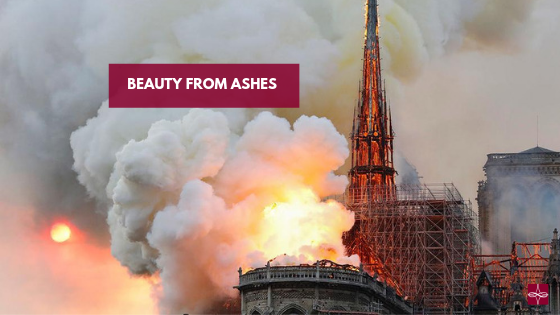
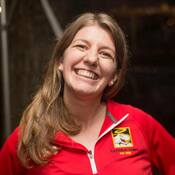
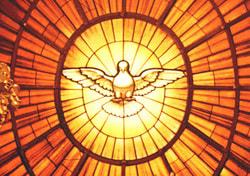
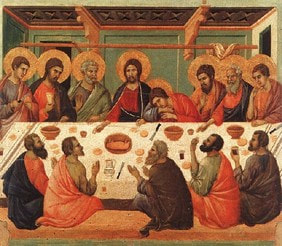
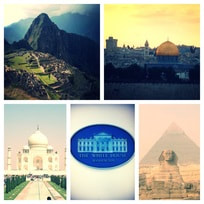
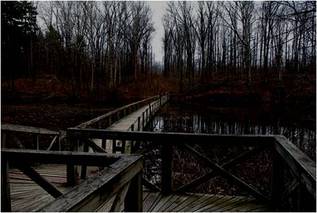
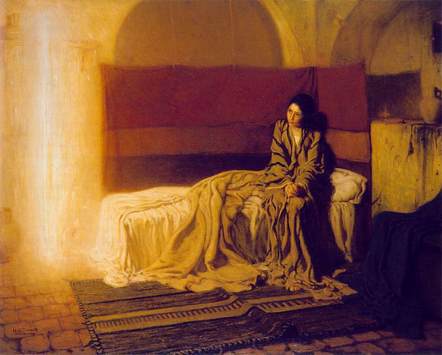
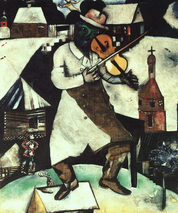
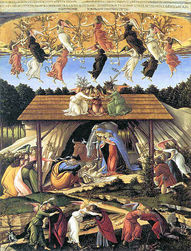
 RSS Feed
RSS Feed